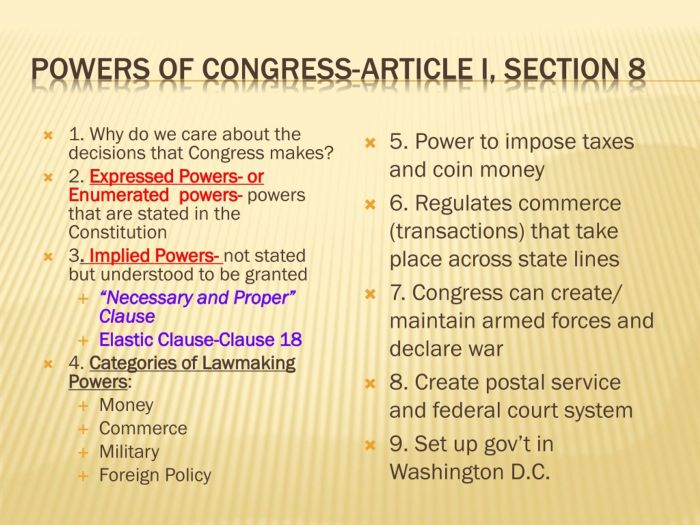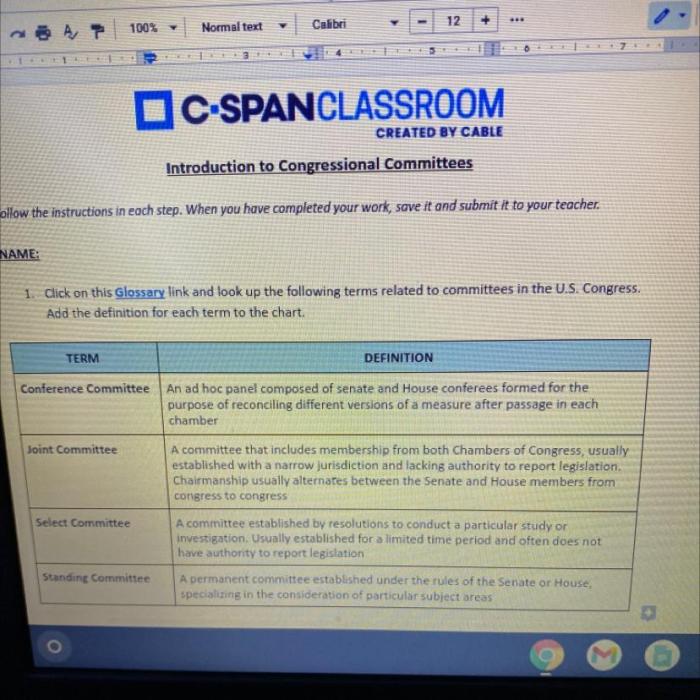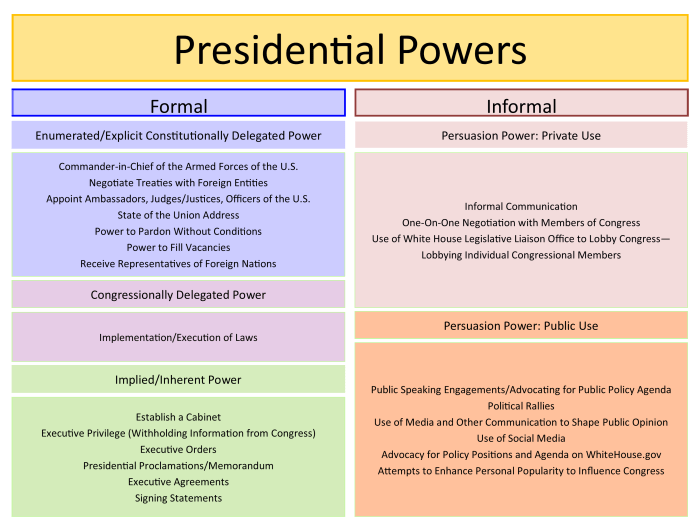C-span classroom the powers of congress handout answers – Unveiling the C-SPAN Classroom: The Powers of Congress Handout Answers, this comprehensive analysis delves into the intricacies of the legislative, executive, and judicial powers vested in the United States Congress. Through an in-depth exploration of the handout, we unravel the mechanisms by which Congress shapes laws, oversees the executive branch, and influences the federal court system.
Delving into the core concepts and key topics covered in the handout, we illuminate the significance of understanding the powers of Congress in shaping the nation’s governance and ensuring the balance of power among the three branches of government.
C-SPAN Classroom: Overview

C-SPAN Classroom is an educational program that provides resources and materials for students and teachers to learn about the history, structure, and function of the United States government. The program is designed to help students understand the role of Congress in the American political system and how the powers of Congress have evolved over time.
“The Powers of Congress” Handout

The “The Powers of Congress” handout is a comprehensive resource that provides an overview of the powers of Congress. The handout covers the following topics:
- The legislative powers of Congress
- The executive powers of Congress
- The judicial powers of Congress
Article

Introduction
Congress is the legislative branch of the United States government. It is responsible for making laws, overseeing the executive branch, and creating and overseeing the federal court system. The powers of Congress are Artikeld in the Constitution, and they have evolved over time through interpretation and precedent.
Legislative Powers
The legislative powers of Congress are the most well-known. Congress has the power to make laws on any subject that is not specifically reserved to the states. This includes laws that regulate commerce, taxation, and immigration. Congress also has the power to declare war, raise and support armies, and provide for the general welfare of the United States.
Executive Powers
In addition to its legislative powers, Congress also has a number of executive powers. Congress has the power to impeach and remove the president, vice president, and other federal officials. Congress also has the power to approve or reject treaties and to confirm or reject presidential appointments.
Judicial Powers
Congress also has a number of judicial powers. Congress has the power to create and oversee the federal court system. Congress also has the power to impeach and remove federal judges. Congress also has the power to propose constitutional amendments.
Conclusion
The powers of Congress are vast and far-reaching. Congress is responsible for making laws, overseeing the executive branch, and creating and overseeing the federal court system. The powers of Congress have evolved over time through interpretation and precedent, and they continue to play a vital role in the American political system.
User Queries: C-span Classroom The Powers Of Congress Handout Answers
What is the purpose of the C-SPAN Classroom: The Powers of Congress Handout?
The handout aims to educate students and the public about the powers and responsibilities of the United States Congress, fostering a deeper understanding of the legislative, executive, and judicial branches of government.
What are the key concepts covered in the handout?
The handout explores the legislative powers of Congress to make laws, the executive powers to oversee the executive branch, and the judicial powers to create and oversee the federal court system.
How can I use the handout to enhance my understanding of Congress?
The handout serves as a valuable resource for students, educators, and citizens seeking to grasp the intricacies of Congress’s role in the American political system. By studying the key concepts and examples provided, individuals can gain a comprehensive understanding of the powers and responsibilities of Congress.
